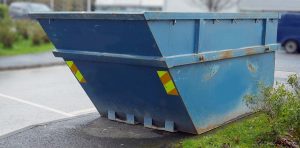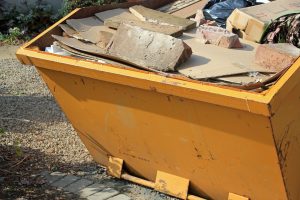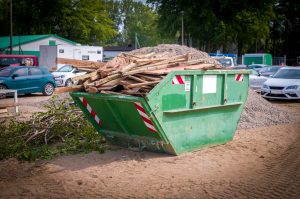If you’re like most people, you probably don’t think twice about hiring a skip when you need to clear out some rubbish. But what many people don’t realize is that skip hire can actually have a significant impact on the environment – both in terms of the resources used to provide the service and the waste that is produced.
In this blog post, we’ll take a closer look at the environmental impact of skip hire, and explore some ways that you can reduce waste when using this service. We hope that by understanding the issues involved, you’ll be able to make more informed choices about how to reduce your own impact on the environment. Thanks for reading!
Why skip hire is important for reducing waste
Skip hire is an immensely important service when it comes to reducing waste and minimising our personal environmental impact. With a skip, we’re given a practical solution to dispose of unwanted materials from either residential or commercial projects quickly, safely and responsibly. Whether you’re tackling a home renovation or need to offload excess general waste from your business, skip hire can help get rid of it with maximum efficiency. While there are other ways to deal with rubbish, skip hire avoids the costly and time-consuming process of taking multiple trips to dispose of items in multiple places. Skips make it easy to sort waste into different categories for proper disposal – landfill, recycling or reuse – and allow us to get rid of things quickly without harming the environment. It’s truly a win-win situation!
How to find a reputable company
Finding a reputable company you can trust can be a daunting task. With so many options available, it’s important to make sure you do your research in order to find the best fit for you. Reading reviews from current and past customers, seeking out endorsements or referrals from friends or family, and researching the company’s history are all smart steps to take before committing to doing business with any company. These are all things that Bushbury Skip Hire excels at. Taking these precautions can help ensure that you’ll end up choosing a reliable and trustworthy company that will provide you with quality service.
What size of skip do you need?
Knowing the size of skip you need can feel overwhelming, especially if you have no yardstick with which to compare. However, it doesn’t have to be an impossible feat. Think about how much waste needs disposing and where it’s located. Is it from a construction project? If so, you’ll likely need a large skip. Or perhaps you just want to free up some space by decluttering your home or garden? Then most likely a mid-sized option should do the trick. There are also mini skips that come in handy for smaller jobs in tight spaces like lofts or basements. Whichever size works best for your needs, be sure that whatever you hire is suitable for all your waste items too.
How to fill your skip
Filling a skip can be a daunting task, but it doesn’t have to be. It’s important to know how to efficiently fill a skip and It’s all about being organised and knowing the basics of what goes where. Firstly, light materials should always be placed at the top – this includes boxes filled with lightweight items like clothes or books – and make sure that you pack them tightly together for the best results. Next, place heavier materials in the bottom of the skip, i.e concrete blocks, garden furniture or large appliances as these items will act as a counterweight for everything on top. Furthermore, make sure hazardous materials are not placed in your skip; toxic liquids or gas canisters need to be taken somewhere safe for appropriate disposal. And lastly, once everything is packed it’s important to cover the contents with pieces of scrap wood – this will ensure that your skip stacks evenly when collected by the company providing it. Following these tips will make the whole process of filling your skip much easier!
The environmental impact of different types of waste
Managing different types of waste and their associated environmental impact can be a complex task. Every type of waste has unique dangers, from landfill pollutants such as methane gas and leachate to the harmful effects of incineration byproducts. Recycling is likely the most familiar approach to waste management, yet even this process creates pollution when the materials are collected and transported. Composting is a much more environmentally friendly option since it avoids potential air, water and soil contamination, while also providing nourishment for plants and other organisms in nature. At the end of the day, reducing overall levels of waste should remain our primary goal if we want to protect our planet for generations to come.
How to reduce the amount of waste you produce
Reducing the amount of waste we produce is an essential part of living a sustainable lifestyle and protecting our planet, however, it can seem like a daunting task. Fortunately, it’s easy to make a real difference. Start by bringing your own reusable bags to the grocery store – from there, you can move on to other eco-friendly swaps like investing in reusable water bottles and coffee mugs for your daily essentials, instead of paper and plastic alternatives. Setting aside some time to clean up your home and get rid of items that don’t spark joy or have gone unused for months can also help reduce the strain on landfills. Even little changes like avoiding food packaging where possible, making use of composting resources for kitchen scraps and choosing to buy second-hand as much as is possible all add up!







